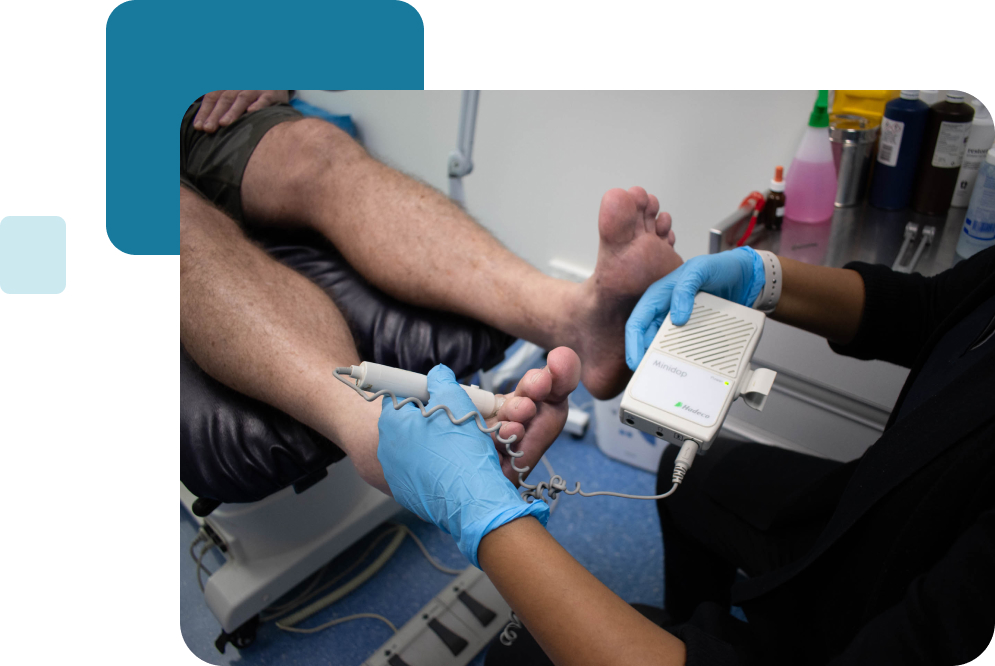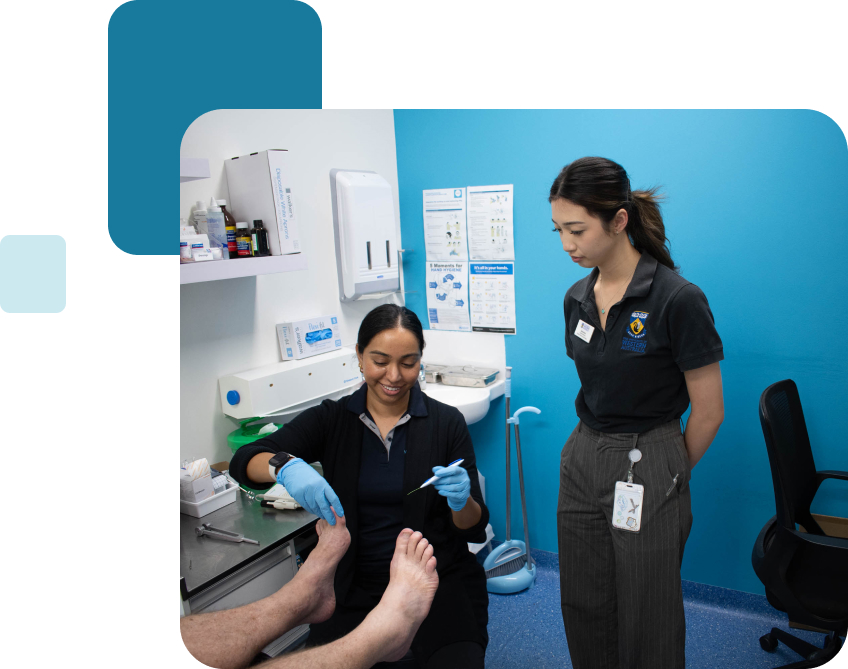21 Harvey St, Burswood WA 6100, Australia

Diabetes can affect circulation and nerve function, which may increase the risk of foot problems. Regular podiatry care plays an important role in monitoring and managing these changes.
We focus on prevention and early management. Alongside podiatry services, we also offer:
Diabetic-specific exercise classes are designed to improve circulation and mobility
Access to our expert team of dietitians
This coordinated approach aims to support overall health and help maintain foot function and wellbeing.
Our podiatrists use an evidence-informed approach to diabetic foot management, which may include:
Comprehensive Foot Assessments
Vascular (blood flow) and neurological (nerve) testing
Screening for neuropathy and ulcer risk
Toenail and Skin Care
Safe nail trimming, corn, and callus management
Advice to support skin integrity and reduce dryness or infection risk
Wound Management
Care for ulcers, pressure injuries, and infections
Collaboration with your GP or specialist when required
Footwear and Pressure Offloading
Custom orthotic and footwear advice
Guidance on suitable shoes and insoles to reduce pressure
Ongoing Monitoring and Education
Foot care advice, awareness of warning signs, and regular reviews
Early assessment and consistent care play an important role in maintaining foot health.
You can book an appointment online with our podiatrists. No referral required.

We support people with diabetes at every stage, from early risk detection to complex wound care, at our conveniently located clinics:

Experienced podiatrists in diabetic foot care.
Supportive, team-based approach with podiatrists, exercise physiologists, dietitians and physiotherapists.
Easy online bookings with no referral needed.
Patient-focused, preventive care model.
We accept all major health funds.
When should I see a podiatrist for diabetic foot care?
It’s recommended to see a podiatrist soon after being diagnosed with diabetes, even if you don’t have symptoms. Regular foot assessments help identify early changes and support long-term foot health.
What are signs that I should see a podiatrist?
You may notice:
Numbness or tingling
Cuts or blisters that are slow to heal
Swelling or redness
Changes in skin colour or temperature
Dryness or cracking
Discomfort when walking
These can indicate circulation or nerve changes that require assessment.
Do I need a referral?
No referral is needed to book with our podiatrists. You can make an appointment directly online or by phone.
Can podiatrists manage foot ulcers?
Yes. Podiatrists can assess and manage foot ulcers, pressure areas, or wounds, and coordinate care with your GP or specialist when needed.
How often should I have my feet checked?
Most people with diabetes benefit from at least one foot assessment each year. Those with previous ulcers, nerve, or circulation changes may require more frequent reviews.
What does a diabetic foot assessment include?
Circulation (vascular) and nerve testing
Skin and nail assessment
Footwear and pressure review
Individual care recommendations
What should I do if I notice a sore or blister?
Keep the area clean, avoid pressure, and arrange a podiatry appointment promptly for assessment and advice.
Can diabetic foot problems be reduced with care?
Yes. Regular podiatry visits, well-fitted footwear, blood sugar management, and daily foot checks at home can all support better foot health.
Do you accept private health funds or Medicare?
Yes. We accept all major health funds, and eligible patients may claim Medicare rebates through a GP-managed Chronic Disease Management (CDM) plan.
How does WA Health Group support diabetic foot care?
We offer coordinated care through podiatry, exercise physiology, and dietetics services to support overall diabetic health and mobility.